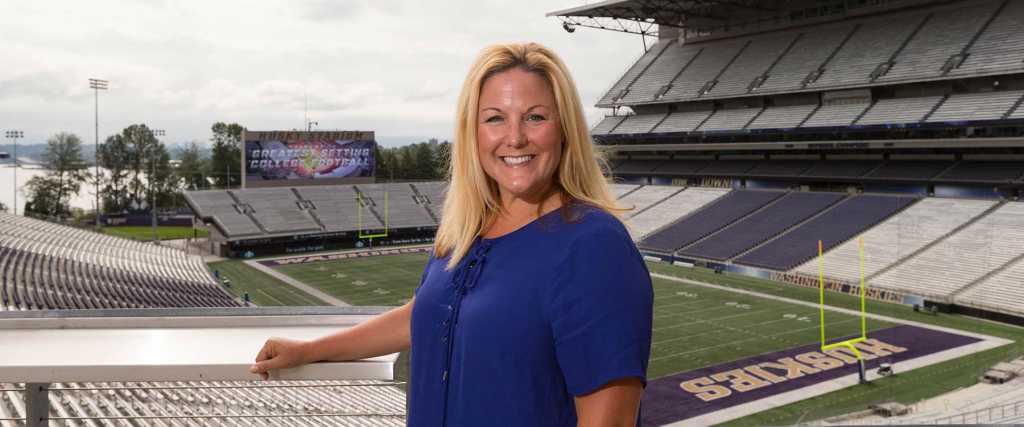Page 174 • (2,857 results in 0.039 seconds)
-
are carefully tailored to active research labs and projects led by faculty who have proven themselves as exceptional mentors for undergraduate students. Explore the Programs: Applications and Foundations of Unmanned Systems Applied Plant Systems Beneficial Bacteria Beneficial Insects Bioenergy Systems Biomedical Engineering Devices Chemical Assembly Community-Engaged Training for Advancing Health Equity Crop-to-Food Innovation Digital Legal Research Lab Emergent Quantum Materials and Technology
-
projects during the summer at Seattle Children’s Research Institute under the mentorship of experienced researchers and principal investigators. Students will learn to use lab equipment (as applicable), meet with mentors and gain valuable research experience. Students will also attend career and professional training sessions on topics such as writing abstracts, résumé writing, cultivating interview skills, crafting an effective LinkedIn profile and more. The program will culminate with each intern
-
address so the FAFSA generated Student Aid Report can be emailed to you.) Advanced Nursing Education Workforce (ANEW) programThis is a grant from the federal Health Resources & Services Administration (HRSA) which supports training for 72 Doctor of Nursing primary-care nurse practitioners, beginning with the 2019-2020 school year. The grant is for $2.8 million over four years, with annual funding subject to Congressional budgeting. This grant will strengthen training partnerships between the
-
Pinning Ceremony School of NursingDecemberPI Commissioning CeremonyReserve Army Officers' Training Corps400December Nordlyset Christmas PartyScandinavian Cultural Center72December President's Christmas Soiree Office of Alumni and Constituent Relations100DecemberOffice of Alumni and Constituent Relations Parkland Children's WinterfestHospitality Services and Center for Community Engagement and Service1100December Annual Christmas LuncheonHuman Resources660DecemberPI, AC Nordic Christmas
-
, Mentor. Be sure they use the newest proposal form and new templates.QI? Nursing faculty check here for QI project info First time having your students work with the HPRB?Use our Step-by-Step guide.Step 1: Check if your students need HPRB review Step 2: Complete required online training (CITI) Step 3: Understand the basics of the HPRB process Step 4: Understand methodological issues that impact HPRB proposals Step 5: Plan ahead for review time Step 6: Provide your electronic signature to submit your
-

III athletics. Cohen said she loves the Division III mentality; a comprehensive commitment to success of the student athlete as a whole. “It’s what I believe in here,” she said. She’s close to the students living out that mission, too. Following two big bear hugs outside the weight training room, offensive linemen Trey Adams and Henry Roberts — who tower over the AD at 6’8” and 6’5″, respectively — are eager to tell Cohen how training and summer school are going. And to congratulate her on the new
-
, and Sustainability and/or counseling through the University’s employee assistance program. E. Training The University is committed to providing all members of its community with education and training about the nature of sexual harassment, its damaging consequences and procedures for handling complaints. Training is particularly essential for persons in supervisory roles who may face personal liability if they fail to take appropriate action when they become aware of instances of sexual
-
A History of the PLU Chemistry Department into the Early 1990's By William Giddings, Professor Emeritus September 1995 Anders Ramstad The early history of chemistry at Pacific Lutheran, beginning in 1922, was chronicled by Professor Emeritus Anders Ramstad (right) in Recent Developments in Sciences, a collection of papers honoring Professor Robert C. Olsen in 1975. After Myron Ringstad had taught chemistry classes from 1922-1925 and a year passed with no chemistry courses offered, Dr. Ramstad
-

go. If they have more interest in the really small things, like molecular work, or virology, or microbiology, they can take classes on that. If they want to go bigger with the systems, in terms of ecology and organisms, they can do that too, and everything in between. I found it really amazing that students were able to create their own focus in that way.I also had a really good experience talking with students. I had lunch with three students during my interview here, and all of them were double
-
to apply? These questions are common ones we hear at the beginning of the college search process. It can feel overwhelming, but after this webinar, you’ll know how to make a solid start. REGISTER FOR WEBINAR College Applications 101: How to Land in the 'Yes' PileWednesday, September 27, 6:00-7:00pm PTHave you wondered what the college application process is really like? How does an admission counselor at a 4-year university review your application? What classes should you be taking in high school
Do you have any feedback for us? If so, feel free to use our Feedback Form.


